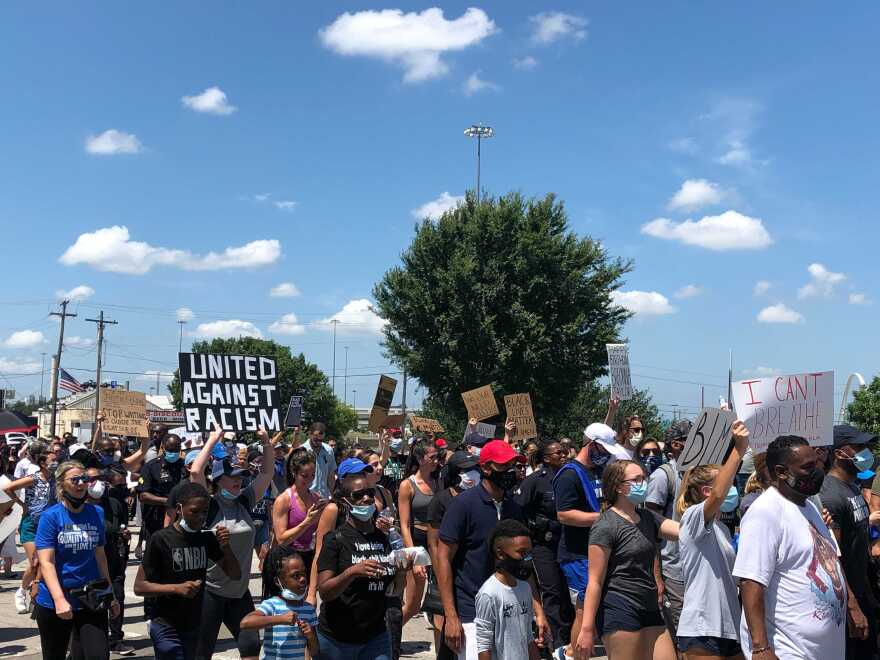North Texans will head to the voting booth this Saturday, May 1. Dozens of races are on the ballot for local elections in cities across the region, including Fort Worth mayor, Fort Worth City Council, Dallas City Council, Arlington mayor and some Arlington City Council seats.
Here’s the 4-1-1:
1. These Seats Matter
A city council member's job is to propose policy and vote on how city money is spent. The mayor either runs a city and oversees all of its services, or has a hand in hiring and firing the person who does those things — the city manager.
Even in a “weak mayor” system, where a mayor is just one vote on the city council, he or she affects the day-to-day lives of residents.
“The mayor names, pretty much, the chair of every committee,” retired journalist O.K. Carter said of Arlington. “The mayor has the lectern.”
2. Open Seats Lead To More Candidates
In Fort Worth, Mayor Betsy Price, the city’s longest-serving mayor, is not running for reelection and her departure means a slew of candidates are vying for her seat.
Two city council members, Ann Zadeh and Brian Byrd, are among the 10 people running to replace her. Another council member is retiring, leaving three vacancies along with the mayor’s seat.
“We haven’t had that much turnover in more than 20 years. Maybe even longer than that,” said Kenneth Barr, mayor of Fort Worth from 1996 to 2003.
This is a big contrast from the last election in 2019, when the entire city council was reelected.
There are also many names on the ballot in Dallas. But not for mayor, because Mayor Eric Johnson is in the middle of a four-year term. Instead, a total of 56 people are running for 14 city council seats.
Three of the seats, Districts 2, 11 and13 are open because incumbents have hit their term limits.
“The literature and political science tells us that more people run when there's open seats," said Andrea Silva, professor of political science at the University of North Texas. “So it makes total sense that...term limits will bring a completely different, completely new player to this game.”
In Arlington, there are seven candidates running to replace current Mayor Jeff Williams, who has also hit his term limit.
3. Activists Are Running In Dallas

In Dallas, the opportunity to set policy as a council member is motivating new candidates to enter the field. Many of the people running for office are activists that work for nonprofits that advocate for police reform, racial equality and social justice.
“As an activist, the most you can do is signal for local change, but then, what if you had the opportunity to actually be in that seat?” Silva said.
Although making the leap from activism to politics is a trend that can be traced throughout history, according to Silva, the past year has pushed community organizers to trade protesting for a seat at the table.
“Protests are important. They're important as like a thermometer, as like a signal to elected officials about what residents are mad about and what they want to change. But that doesn't necessarily correlate with a change, unless you can execute directives,” said Silva.
4. Turnout Is Typically Low, But Doesn’t Have To Be
Cities in North Texas have much lower turnout in local elections than places like Portland, Oregon and Louisville, Kentucky.
Part of that is because many local elections are often not aligned with the big November elections for president or governor.
“We all have our lives and we all have our own individual priorities and our bandwidth is only so broad,” said UT-Arlington political scientist Rebecca Deen. “Because there are so many different elections and election cycles, something’s gotta give, and it’s usually the off-years.”
Deen said that when turnout is low, there’s less incentive for elected leaders to respond to the public — they only have to play to the small slice of people who voted for them.
Still, it wouldn’t take a significant number of new voters to upset the traditional pattern. In May 2019, 18,132 people voted in the Arlington mayoral election. This past fall, a couple of citywide elections pulled in over 100,000 votes.
How To Vote
Election Day is May 1 (Yup, this Saturday!). Early voting ends Tuesday, April 27.
To vote, the first step is to make sure you’re registered. To check your registration status, go to this Texas Secretary of State website.
Next step, find out where you can vote! To vote in person you must do so in the county where you live. Most locations are open from 7 a.m. - 7 p.m. For more accurate times and addresses, here’s a list.
Some tips: Don't forget your photo ID. If you have misplaced it or are having trouble getting one, you can present a birth certificate, bank statement, utility bill or paycheck.
Lastly, get to know what’s on the ballot. You can read all about Arlington, Fort Worth and Dallas races here.
Good luck!
Got a tip?
Alejandra Martinez is a Report For America corps member working at KERA News. Email Alejandra at amartinez@kera.org. You can follow Alejandra on Twitter @alereports.
Email Miranda Suarez at msuarez@kera.org. You can follow Miranda on Twitter @MirandaRSuarez.
Email Bret Jaspers at bjaspers@kera.org. You can follow Bret on Twitter @bretjaspers.
KERA News is made possible through the generosity of our members. If you find this reporting valuable, consider making a tax-deductible gift today. Thank you.











